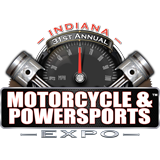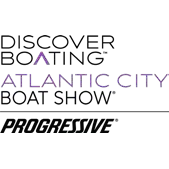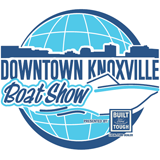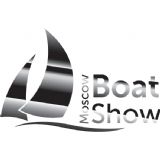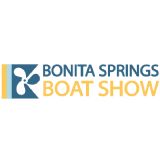|
|
|
| Merchant vessels Waste handling solutions
|
|
Merchant ships of all types, ranging from small feeder ships to car carriers, giant container vessels and oil tankers, travel the oceans daily transporting a vast range of cargoes.
Sea transportation is a fiercely competitive business. To remain profitable, shipowners and operators focus continuously on reducing operating costs. Uncertainty in the global economy, credit crises, fluctuating freight rates and oil prices all affect the ship owner's profit margins. Bunker fuel oil alone can account for up to 60% of a vessel's operating costs.
An important factor is the need to comply with increasingly stringent international and local environmental regulations, such as those relating to emissions and ship-generated waste.
Ships produce a huge variety of solid and liquid waste streams, including waste oil from the engine rooms, black water, grey water, bilge water, dry waste, food and galley waste and others. All the waste needs to be processed - initially onboard and later on shore. Waste handling in compliance with the regulations must be made easy for the crew by means of clear procedures for sorting the waste into fractions and user-friendly solutions for reducing its volume.
International and local regulations
Waste handling onboard ships is clearly regulated. IMO sets the international standards and defines special regulated areas. Individual nations or groups of nations have their own regulations. Examples are the US EPA and the Helsinki Commission, HELCOM.
In addition to international and local regulations are individual port regulations. When it comes to landing and disposal of waste, every country and every port has different requirements, facilities and cost structures.
Cargo owners turning to ‘green' shippers
Environmental awareness is growing among the public in many industrialized countries. This, in turn, is motivating an increasing number of cargo owners around the world to examine not just the environmental aspects of their own products but the entire life cycle of the products, including sea transport.
This leads many cargo owners to give preference to shipping companies making documented efforts to minimize the environmental impact of their operations.
An example are the oil companies whose environmental policies are becoming increasingly stringent following a number of environmental disasters.
This, in turn, motivates ship owners to specify environmental class notations for newbuildings.
Environmental class notations
Most of the class societies have developed their own environmental notations that may be applied to a vessel and have a direct influence on onboard waste management.
For example, DNV Clean and Clean Design class notations are voluntary environmental newbuilding specifications that are demanded by the oil majors from the ship owners transporting their cargoes. As cargo owners and charterers, the oil companies typically demand higher than normal environmental compliance from the ship owners transporting their cargoes, such as tanker owners and owners of offshore supply vessels. The same applies to owners building LNG carriers and car carriers.
Environmental Class notation reduces a ship's environmental impact due to air emissions, sea discharges and accidental damage to the ship's hull. The notations award owners and operators who choose to design and operate their ships in an evironmentally sustainable manner.
DNV Clean notation stipulates that the vessel must be designed and operated in accordance with current and future regulations for protection of the environment. Technical and management processes and procedures for collection, transfer and storage of waste must also be adopted. The Clean Design notation is based on the same Clean goals but is stricter. It stipulates that the constructional design and operation of vessels should be such that it minimizes their impact on the environment.
Third party bodies setting standards
At the same time, international third party bodies such as Clean Shipping Index, Clean Cargo Working Group and Green Award Foundation are setting standards for environmental efforts that go beyond global and regional rules and regulations and ISO14001.
Shipowners, operators and vessels are certified or acknowledged for their efforts and this acts as a valuable guide to cargo owners seeking "greener" shipping alternatives. The Clean Shipping Index, for instance, enables cargo owners to benchmark ships by providing information (voluntarily provided by the ship owners) on their overall environmental performance.
By participating, a shipping company can enhance its environmental profile and become a preferred choice for the environmentally conscious cargo owner. Other benefits for the shipper include discounts in port dues, charter preferences, lower insurance premiums, and acceptance by PSC/vetting inspections.
Dry waste and food waste
Important factors relating to dry waste and food and galley waste are the ship's operating profile. the number of people onboard, length of time between port calls, waste reception facilities at ports visited, and amount of storage space available onboard.
A ship operating on regular routes, calling at the same ports can establish efficient waste handling routines more easily than a ship that operates on the spot market and that may visit different countries and ports on almost every voyage.
Waste accumulates fast and onboard incineration is increasingly regulated. Fewer newbuildings are being equipped with incinerators and more waste has to be treated, stored onboard and subsequently landed.
In a modern waste management system, dry waste is separated into fractions onboard the ship to allow for recycling, and the volume is reduced by crushing, compaction and shredding. This reduces transportation and disposal costs. Waste handling from ship to port/waste station is optimized.
Food waste is collected, ground where it is produced and dischrges into the sea where permitted. Thus the work for the crew is minimized and proper hygiene is maintained in the galley.
Central vacuum cleaning
On merchant ships, crews are often responsible for cleaning their own cabins. This is made simple and convenient by means of a central vacuum cleaning system, which also ensures a healthy dust-free atmosphere onboard. The cleaning equipment does not need to be carried manually around the ship and the problem of who will empty the dust bag is eliminated.
Waste handling solutions from Uson Marine
Uson Marine designs, configures and supplies advanced waste handling solutions for merchant ships of all types. Our solutions reduce the cost and simplify the logistics of waste handling and disposal onboard ships, saving time and money for the owner or operator and reducing the workload for the crew. Uson's solutions can easily be retrofitted into existing vessels.
Uson Marine offers a professional consultancy service for clients considering investing in modern, environmentally friendly waste management systems for newbuildings or for retrofitting into existing ships.
|
|
| Related Products |
|  refrigeration container refrigeration container
Qingdao CIMC Special Reefer CO.,Ltd
refrigeration container... | |  41??ver-wide Steel Reefer With Protect Frame 41??ver-wide Steel Reefer With Protect Frame
Qingdao CIMC Special Reefer CO.,Ltd
1. External dimension: 41''3" x 2500 x 9''10"
2. Steel or Aluminium structure, high strength and low tare weight
3. With standard 40ft bottom and top ... | |  VHF MARINE RADIOTELEPHONE FM-4000 VHF MARINE RADIOTELEPHONE FM-4000
Furuno Electric Co., Ltd.
With Class-D DSC Modem and CH70 watch receiver
The FM-4000 is a rugged, reliable 1 W and 25 W radio with built-in DSC functionality built to withstand ... | |  4.5" GPS/WAAS NAVIGATOR GP-32 4.5" GPS/WAAS NAVIGATOR GP-32
Furuno Electric Co., Ltd.
Compact in size, waterproof, yet big on power, features and performance, Furuno?? GP32 is perfect for a wide range of smaller fishing boats and pleasure ... | |  10.4" MARINE RADAR MODEL 1824C 10.4" MARINE RADAR MODEL 1824C
Furuno Electric Co., Ltd.
NavNet vx2 MODEL 1824C combines 2.2kw radar, GPS/WAAS chart plotter, fish finder, and network weather facsimile into an all-round navigation network.
... |
|
|
|
|


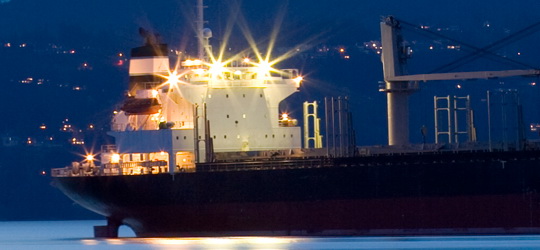
 refrigeration container
refrigeration container 41??ver-wide Steel Reefer With Protect Frame
41??ver-wide Steel Reefer With Protect Frame VHF MARINE RADIOTELEPHONE FM-4000
VHF MARINE RADIOTELEPHONE FM-4000 4.5" GPS/WAAS NAVIGATOR GP-32
4.5" GPS/WAAS NAVIGATOR GP-32 10.4" MARINE RADAR MODEL 1824C
10.4" MARINE RADAR MODEL 1824C